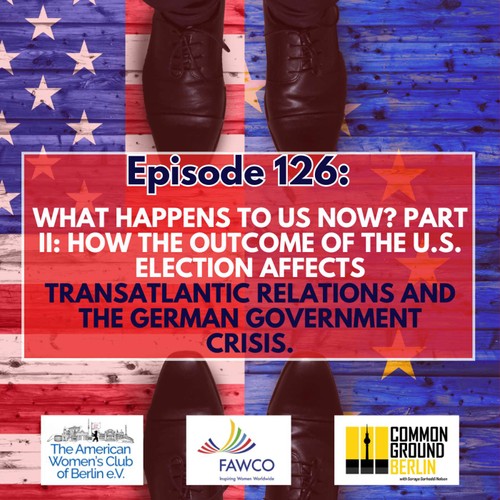
 Common Ground Berlin
Common Ground Berlin What happens to us now? Part II: How the outcome of the U.S. election affects transatlantic relations and the German government crisis.
Dec 8, 2024
Constance Chucholowski, head of the Berlin chapter of Democrats Abroad, and Jeremy Shapiro, research director at the European Council on Foreign Relations, dive into the potential shifts in U.S.-European relations after the recent election. They analyze how a second Trump term could complicate negotiations over Ukraine and increase trade tensions. The duo also discusses the implications of ambassadorial appointments and European defense strategies against Russian threats, while highlighting challenges for Americans abroad and the broader impacts on democracy and journalistic freedom.
AI Snips
Chapters
Transcript
Episode notes
Transatlantic Relations Under Trump
- Two immediate changes in US-European relations under Trump are ending the war in Ukraine and renewing the trade war.
- Longer term, the transatlantic relationship will shift from shared values to a transactional one.
Trump's Ambassadorial Picks
- Trump's ambassadorial picks are based on loyalty, personal interests, and appearance, not policy approaches.
- The ambassador to France pick exemplifies this, highlighting family ties over qualifications or character.
German Fears Justified
- Germans are right to fear a Trump victory, as it signifies a dramatic shift in transatlantic relations.
- Trump's decisions are transactional, favoring his personal interests, making it difficult to predict his actions and plan accordingly.
